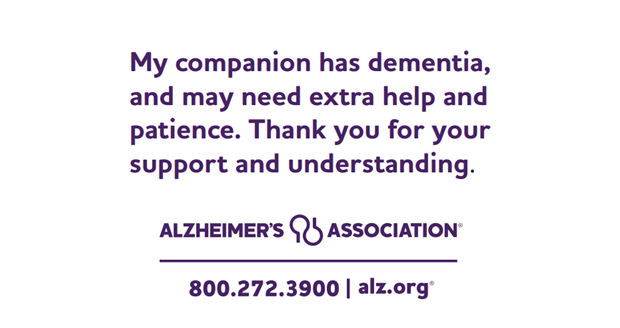Disaster Preparedness for Older Adults & Caregivers
Welcome to First Contact’s Disaster Preparedness Hub
Disasters can be overwhelming, especially for older adults and caregivers. This page provides clear, step-by-step guidance on how to prepare for hurricanes and extreme weather events. Our goal is to keep you safe, informed, and ready.
Jump To Section:
Disaster Planning Assistance - EMERGENCY CONTACTS
These resources will help you think about how to create a disaster plan.
When you make a plan, think about your own situation
Know Your Storm Surge, Flood Risk and Home Strength
Know Your Risk
Pinellas Flood & Evacuation Zone:
Hernando Evacuation Zone:
For Flood Zone Information:
*This link contains information on any location in the United States.
🏠 How Strong Is Your Homesite?
💡 Tip: Go here for additional information about flood insurance:
Consider Individual Needs
Mobility Challenges, Medical Conditions & Special Needs:
- If elevators fail in high-rise buildings, stairwells may be inaccessible for months.
- Independent living facilities often lack emergency assistance—know your building’s plan!
- If you require a wheelchair or walker, evacuate early to avoid last-minute glitches.
- If you need refrigerated medication, oxygen, or dialysis, power loss could be life-threatening.
- Register in advance for Special Needs Shelters
Special Considerations For Caregivers and Older Adults:
Preparedness For Caregivers and Older Adults (from First Contact):
Alzheimer’s Association Resources To Help Caregivers Prepare:
Caregiver Stress Management:
💡 Tip: Use companion cards to help shelter staff and others understand dementia-related needs!

To Help you Think Through the Choices
👀 Not sure if you should leave? Follow this decision tree!
1. Do you live in an evacuation or flood zone?
✔️ Yes → You MUST evacuate when an order is issued.
❌ No → Move to the next question.
2. Do you live in a mobile home, RV, or manufactured home?
✔️ Yes → You MUST evacuate - these structures are not safe in hurricane conditions.
❌ No → Move to the next question.
3. Do you live in a high-rise or condo where power loss will affect elevators or water access?
✔️ Yes → You MUST evacuate due to limited emergency access and essential services.
❌ No → Move to the next question.
4. Do you rely on electric medical devices (like oxygen, CPAP, or feeding tubes)?
✔️ Yes → You MUST evacuate to a special needs shelter or stay with someone who can
support your needs.
❌ No → Move to the next question.
5. Do you have limited mobility and require assistance to leave your home?
✔️ Yes → You MUST evacuate early with help or arrange transportation assistance.
❌ No → Move to the next question.
6. Can your home withstand hurricane-force winds?
❌ No → You MUST evacuate to a safer structure.
✔️ Yes → Move to the next question.
7. Do you have reliable support nearby (family, neighbors, or caregivers who can assist)?
❌ No → You MUST evacuate to ensure you have help if conditions worsen.
✔️ Yes → Move to the final question.
8. Do you have enough supplies (food, water, medications, etc.) to last at least 7 days without power or outside help?
❌ No → You MUST evacuate to maintain your health and safety.
✔️ Yes → You MAY be able to shelter in place, if all previous answers also supported it.
💡 Tip: You MUST evacuate if you answered YES to any of questions 1–5 or NO to any of questions 6–8.
💡 Tip: You MAY shelter in place if you answered YES to questions 6–8 and NO to questions 1–5, and you are fully prepared with supplies and support.
💡 Tip: If you’re unsure, it’s always safer to leave! Shelters and evacuation centers exist to protect lives.
If you plan to evacuate
Family & Pet Information:
NOTE: When and where shelters open depend on the location and timing of the emergency. Stay tuned to evacuation alerts as storms approach.
💡 Tip: Evacuation shelters should be your LAST resort! Plan to stay with family or friends FIRST!
💡 Tip: If you evacuate, take a photo of your home before you leave to document potential damage!
IF YOU PLAN TO SHELTER IN PLACE
Home Preparedness Tips For Wherever You Live:
💡 Tip: Expect long-term disruptions after the storm. Condo residents may be without elevators for 6+ months!
📡Stay informed: Emergency Alerts & Recovery
💡 Tip: Keep a battery-powered radio handy for emergency updates if power is lost!
AFTER THE STORM, WHAT'S NEXT?
💡 Tip: Keep all receipts and documentation for FEMA claims!
Call to Action: Prepare Today!
Don’t wait until the disaster is here, prepare early:
- Check Your Evacuation Zone (links above)
- Download Your Disaster Supply Checklist HERE
- Register for Special Needs Assistance (County links above)
- Save Emergency Contacts in Your Phone!
- Talk to Family and Friends about Your Plan!









